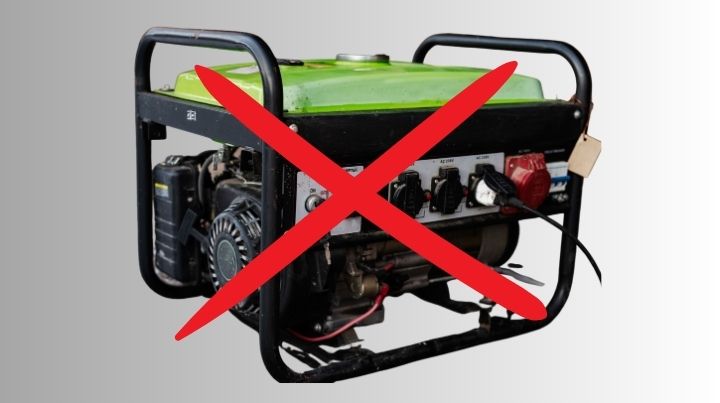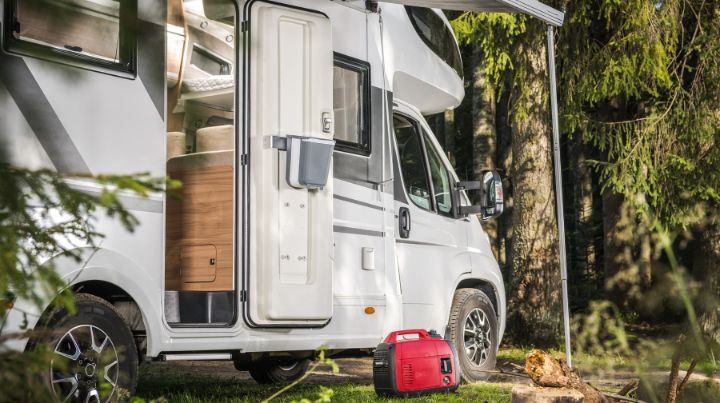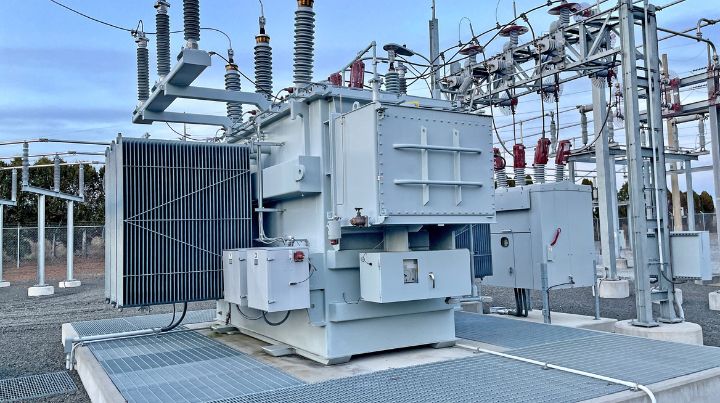Will Gas Generators Be Banned? Here’s What To Know

A few months ago, we wrote about the coming ban on gas stoves. After voter uproar, a bill was passed in June prohibiting the federal government from banning gas stoves. However, cities and states can still restrict them through a combination of bans and code requirements that will effectively end their usage.
Despite the controversy surrounding potential gas stove bans, the federal government is now coming after gas-powered generators, an essential item not only for preppers but also for RVers and people in areas prone to power outages. Think of Californians during fire season or Floridians during hurricane season. Let’s look at why this is happening and, if you rely on a gas generator, what you can do about it.
Background
In December 2015, President Obama committed the United States to the Paris Climate Agreement along with most other world leaders, who believe we can reverse climate change by reducing greenhouse gas emissions. This bill would have cost Americans a great deal of money, and so, per his campaign promises, President Trump withdrew. President Biden, however, recommitted Americans to the goals of the Climate Agreement shortly after taking office.
In 2021, Biden pledged to reduce greenhouse gas emissions by 50-52% from 2005 levels by 2030. 2030 is only six and a half years away. The push to eliminate appliances that rely on fossil fuels is part of the attempt to meet those international commitments.
Now, this gas generator ban is not being sold as an emissions-reduction measure; it’s being pushed as a safety measure. The push has come from the Consumer Product Safety Commission, which claims that much tighter emissions standards are necessary to prevent carbon monoxide poisoning.
Over the past three years, there have been an average of 85 deaths per year due to carbon monoxide poisoning from portable gas generators. And while any accidental deaths are tragic, millions of Americans rely on gas-powered generators during weather-related outages. How many more people would have died from consuming spoiled food or anything else that is more likely to occur when people have to go weeks without power?
Who Will This Affect?
This particular ban will primarily affect RVers and anyone that relies on portable gas generators in emergencies.
To see where this is headed, it might be helpful to look at California. California passed a law in December 2021 banning the sale of gas-powered generators beginning in 2028. Using gas-powered generators will not be illegal; you just won’t be able to buy new ones in California. Diesel, propane, and solar will still be available. And as for now, people can still buy gas generators in other states and bring them into California.
However, if action is taken at a federal level, it will be much harder to buy gas generators out of state and then transport them across state lines.
What Can We Do?
There is a big push to get people to install solar panels on their homes, but this is an investment of tens of thousands of dollars. And, depending on the way your home is built, it’s not always practical. For example, I do not have any south-facing roofs, so even though I live in a sunny area, roof panels would not generate as much electricity for me as they do for some of my neighbors.
If you live in an area prone to hurricanes or any other weather nasty enough to knock out your power regularly, you may want to start budgeting for a whole-house generator. While considerably more expensive than portable gas-powered generators, whole-house generators can run on natural gas or propane, and are hard-wired into your home’s electrical system. You just have to monitor your propane supply, if you are not hooked up to natural gas.
RV Generators
Obviously, RVs don’t have this option. However, propane and diesel portable generators will still be on the market, and these may be worth researching.
The small solar panels advertised for RVs don’t produce enough power to run an air conditioner or a mini-fridge consistently. If you plan to put your RV in an area with enough sunlight to generate power (like Phoenix), odds are you will really want the fridge and A/C.
There are larger portable solar generating options available, but these are considerably more expensive than propane or diesel generators. However, the technology for solar is improving, and these may be worth looking into for long-term planning purposes.
Generator Alternatives
If you don’t use generators that often, ask yourself what precisely you would need one for, and think about other options. For example, I raise a lot of meat, ao one of my biggest concerns in the summertime is what to do in case my freezers go out.
I picked up an Orca cooler a few years ago, and it has saved my tail a few times. It will keep frozen meat rock-hard for two days in summer weather. In cool weather, it can function as an extra refrigerator by holding a moderate temperature for weeks.
I have a good friend with a Yeti cooler. He has kept it in the back of his truck in Florida summers, and will still have ice chunks floating in it after 5fivedays of sitting outside in the bed of his truck. These coolers are not cheap, but when they come in handy, they really come in handy.
Before spending thousands of dollars on new energy hookups, it may be worth your time to sit down with your other household members, discuss what is absolutely essential, and see what other off-grid options you have first.
Shaky Grids
This generator ban may affect more of us than we think. Even if, up until now, you have been used to regular electricity, that may change within the next ten years. If two new proposed EPA rules go through, hundreds of power plants will be shutting down due to new proposed emissions requirements.
The US has already closed over 300 coal-fired power plants in the past ten years, along with dozens of petroleum and nuclear power plants. About 400 new natural gas-fired power plants have opened, along with many thousands of renewable generating facilities, though renewables are notoriously less reliable than fossil fuels.
And while the 400 natural gas-fired power plants have helped reduce carbon dioxide emissions, the White House wants to go after them, too. If the White House and EPA pass the bills they want, Americans will lose more than 20% of their power-generating capacity within the next few years.
Final Thoughts
Politicians have been trying to sell Americans on a “green transition,” but we have no reason to believe this transition will be particularly smooth. PJM, the regional transmission company responsible for power transmission for thirteen northeastern states, plus DC, has conducted a large study on decarbonizing the electrical grid. Right now, their projections based on planned retirements and proposed new generation projects reveal a mismatch between power demand and availability.
With an increasingly unreliable electrical grid, more people are relying on generators. But what do we do if access to home generators is no longer reliable, either?
For now, all the talk is about banning the sale of new gas generators. If you have a gas generator that you love, no one’s going to come and take it, at least not anytime soon. Read the manual. Learn everything you can about maintaining it so it will last as long as possible. The longer you can hang onto it, the more time that will give you to research what kind of generators will be available in the future, and to budget for whatever you may need in the long run.
Additional Resources:
- 7 Best Solar Generators for Off-Grid Living (2023)
- Meat Storage for When There Is No Freezer
- How To Prepare For Rolling Blackouts
- Natural Gas Bans: Coming to a City Near You
Related Articles
FREE Guide
Read the Best Seller
Join Mind4Survival
Stay informed by joining the Mind4Survival! 100% Secure! 0% Spam!
Affiliate Disclosure...
Mind4Survival is a free, reader-supported information resource. If you make a purchase through our link, we may, at no cost to you, receive an affiliate commission.
Do You Want To Be Ready No Matter What?

Download our free 39-page guide with interactive, 7-Day Emergency Kit Checklist and take the first step toward real preparedness.
- Know exactly where to start.
- Save time and money.
- How-to build a complete Basic Emergency Kit.
- Level up your safety and security.
Join Mind4Survival
Stay informed by joining the Mind4Survival! 100% Secure! 0% Spam!








The long term ecological plan is to kill you, one way or another. That being the case, you are an either a reluctant combatant or an impending casualty. Go watch some Ukraine war videos and consider that reality. That’s the underlying reality they’re disguising with this gradually-eroding normalcy. Your preps will be attacked and you will suffer losses–your access to generators and fuel among them. Do not expect your adversary to be fair or reasonable–his goal is your extermination. They are going to try to shut off every means of survival you have. All of your basic needs are going to be attacked. Redundant systems are more important than perfect ones. Mobile is better than stationary. Reliable is more important than feature richness. Standardization on common models is preferable to exotic units. Simple is better than complex. Your best plan may not survive the first engagement–don’t invest too heavily in that plan.